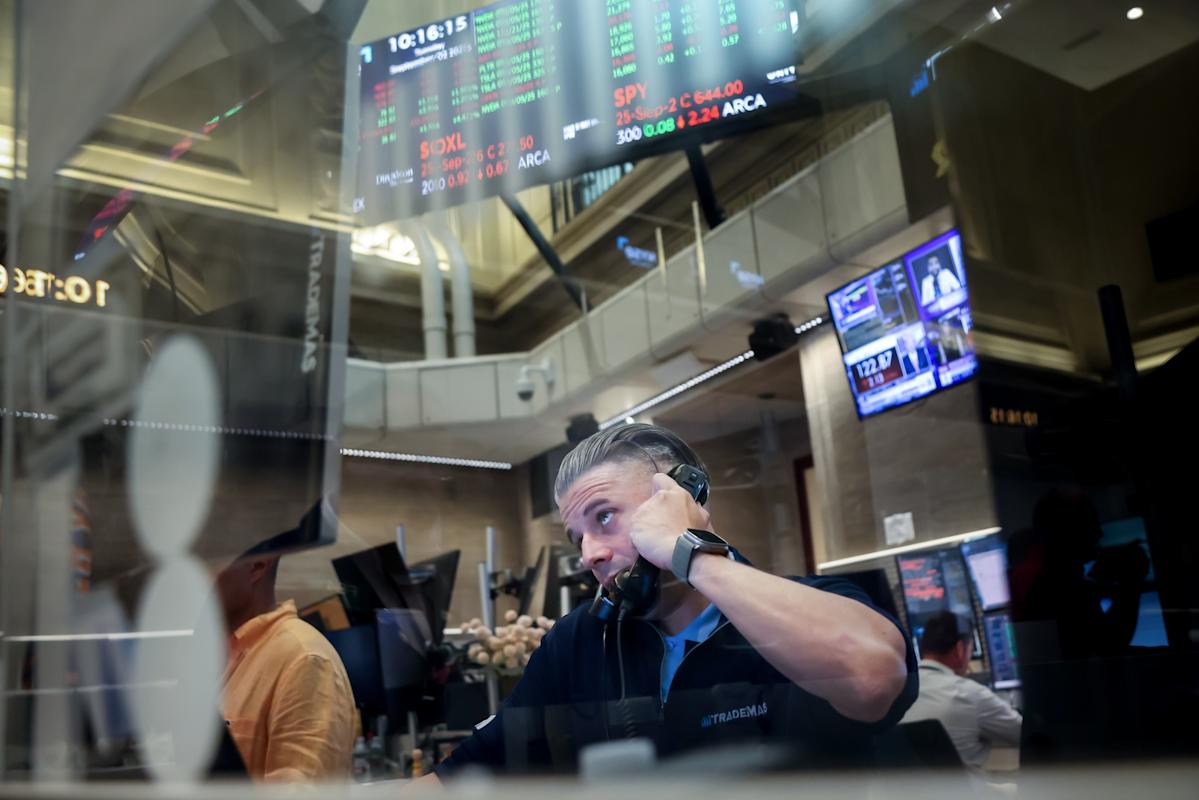Stock Market Rally Risks Losing Steam as Economic Bounce Fades
Traders work on the floor of the American Stock Exchange.
(Bloomberg) — US stocks have defied skeptics this year as they climbed to records despite a global trade war, lingering fiscal fears and September’s gloomy reputation. But for investors fretting about the rally’s durability, the economy may be sending a warning that the momentum is about to fade.
Most Read from Bloomberg
The S&P 500 Index has added $15 trillion in market value since early April and notched 27 records in 2025. Its 34% gain over the last five months — led by a surge in Big Tech shares — is a feat topped in just four other instances since 1950, according to data compiled by Bloomberg.
With the Federal Reserve back to cutting interest rates, risk appetite remains in high gear. The worry among some investors, however, is that the rebound has already priced in a range of positive developments, from easier monetary policy to the economy’s resilience in the face of tariffs. That could leave stocks floundering if the growth picture darkens.
“We’re not fighting the Fed anymore,” which is “good for stocks,” said Michael Sansoterra, chief investment officer and senior portfolio manager at Silvant Capital Management. “The risk is that if the economy significantly quivers, traders may panic and dump those pricier Big Tech stocks first on knee-jerk reactions.”
Middling Economy
While investors cheered the past week’s interest-rate cuts, it remains to be seen whether the Fed has eased monetary policy in time to buffer the economy from any potential negative effects of the global trade war. FedEx Corp., one of the latest companies to flag the impact of tariffs, said on Thursday it expects a $1 billion hit from trade volatility and the loss of a key exemption for low-value goods.
Meanwhile, economists expect real US gross domestic product data, which accounts for the inflation-adjusted value of goods and services, to show economic output decelerated to 1.5% on an annualized basis in the third quarter, down from the government’s official 3.3% reading in the second quarter.
To analysts at Bloomberg Intelligence, a key factor is whether the economy can escape a regime of middling growth that has coincided with comparatively weak stock gains. BI’s model shows that times when growth fears are swirling — last May, for example — have tended to be ideal for buying stocks, while the market has also performed well when the economy is strong.


